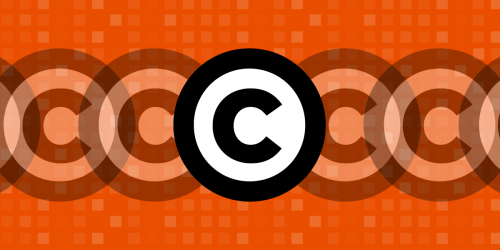Two appeals courts have recently rejected efforts by private parties to use copyright to restrict access to the laws that most directly affect ordinary citizens: regulations that ensure our homes, workplaces, devices, and many other products, are safe and fit for purpose. Apparently hoping the third time will be the charm, a standards organization is asking the Third Circuit Court of Appeals to break ranks and hold that a private party that helps develop a law also gets to own that law. In an amicus brief filed with co-counsel Abigail Burton and Samuel Silver of Welsh & Recker, P.C., on behalf of multiple entities— including Watch Duty, iFixit, Public.Resource.Org, and multiple library associations—EFF urged the court to instead join the judicial consensus and recognize that no one owns the law.
EFF urged the court to join the judicial consensus and recognize that no one owns the law.
This case concerns UpCodes, a company that has created a database of building codes—like the National Electrical Code—that includes codes incorporated by reference into law. ASTM, a private organization that coordinated the development of some of those codes, insists that it retains copyright in them even after they have been adopted into law, and therefore has the right to control how the public accesses and shares them. Fortunately, neither the Constitution nor the Copyright Act support that theory. Faced with similar claims, some courts, including the Fifth Circuit Court of Appeals, have held that the codes lose copyright protection when they are incorporated into law. Others, like the D.C. Circuit Court of Appeals in a case EFF defended on behalf of Public.Resource.Org, have held that, whether or not the legal status of the standards changes once they are incorporated into law, making them fully accessible and usable online is a lawful fair use. A federal court in Pennsylvania followed the latter path in this case, finding that UpCodes’ database was a protected fair use.
The Third Circuit should affirm the ruling, preferably on the alternative ground that standards incorporated into law are necessarily promoted to the public domain. The internet has democratized access to law, making it easier than ever for the public —from journalists to organizers to safety professionals to ordinary concerned citizens —to understand, comment on, and share the myriad regulations that bind us. That work is particularly essential where those regulations are crafted by private parties and made mandatory by regulators with limited public oversight and increasingly limited staffing. Copyright law should not be read to impede it.
The Supreme Court has explained that “every citizen is presumed to know the law, and it needs no argument to show that all should have free access” to it. Apparently, it needs some argument after all, but it is past time for the debate to end.










